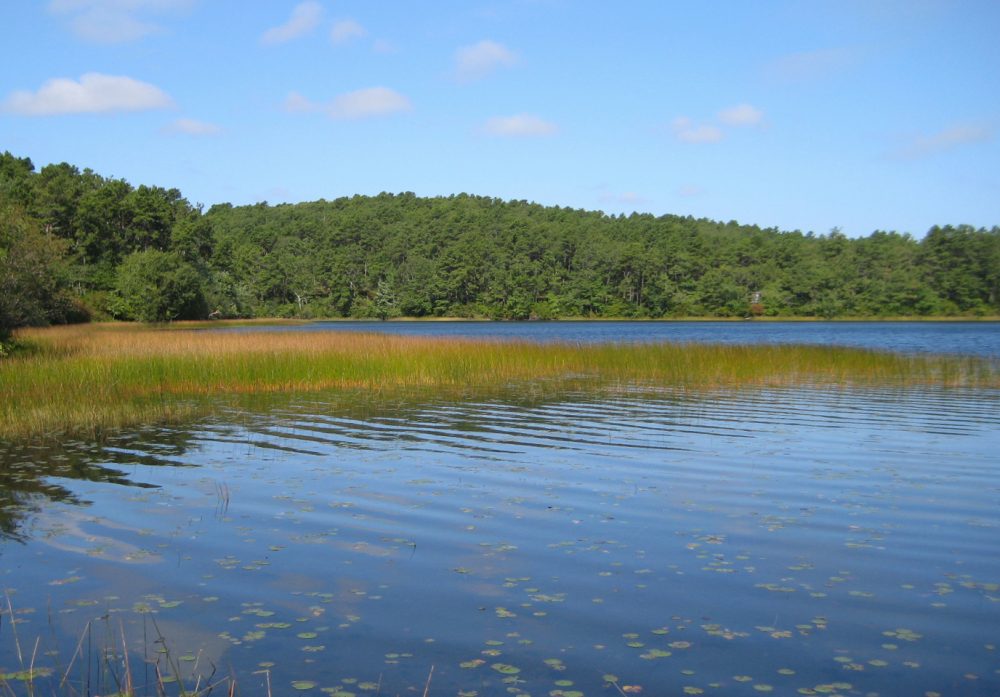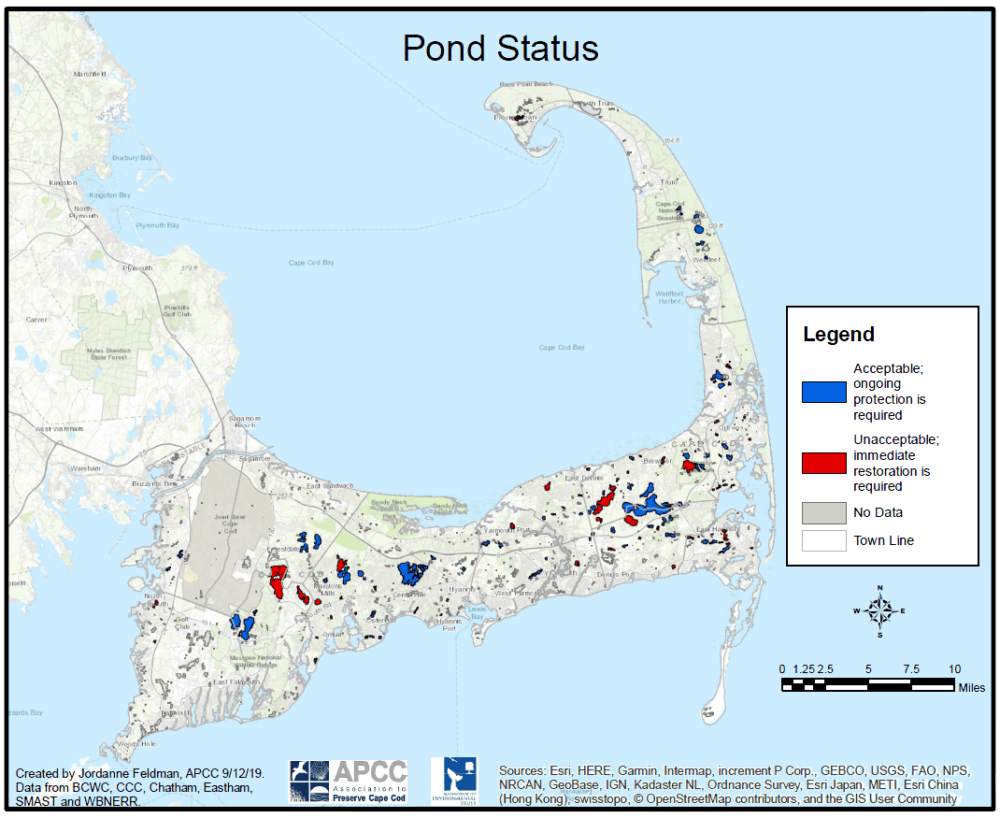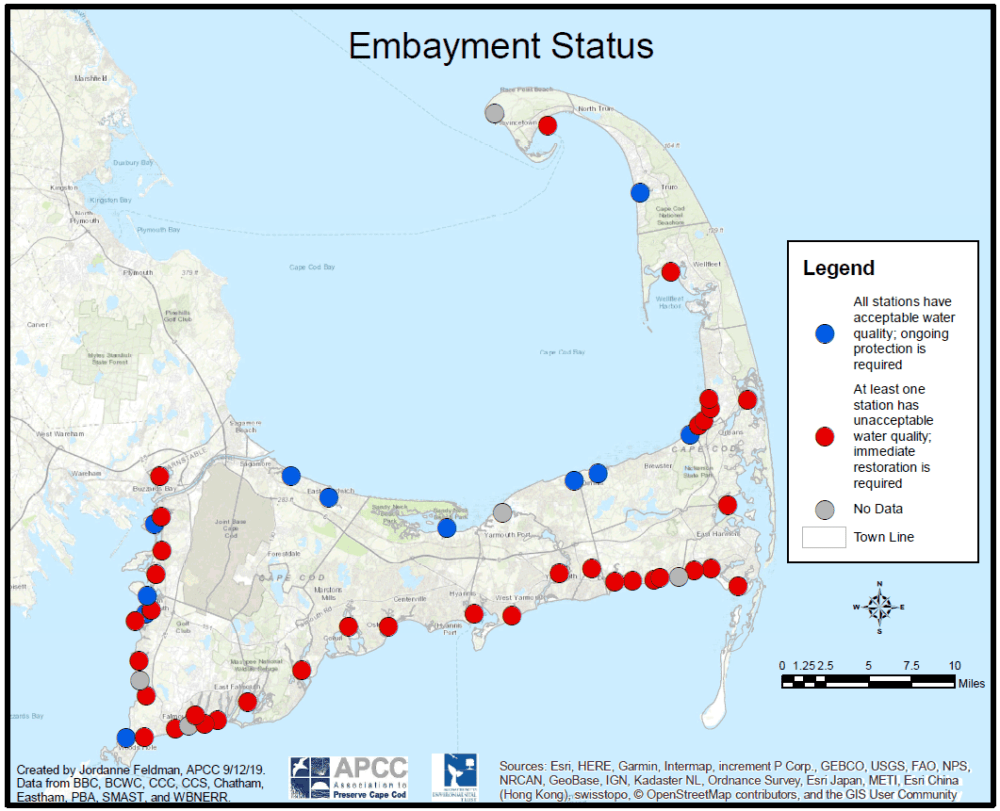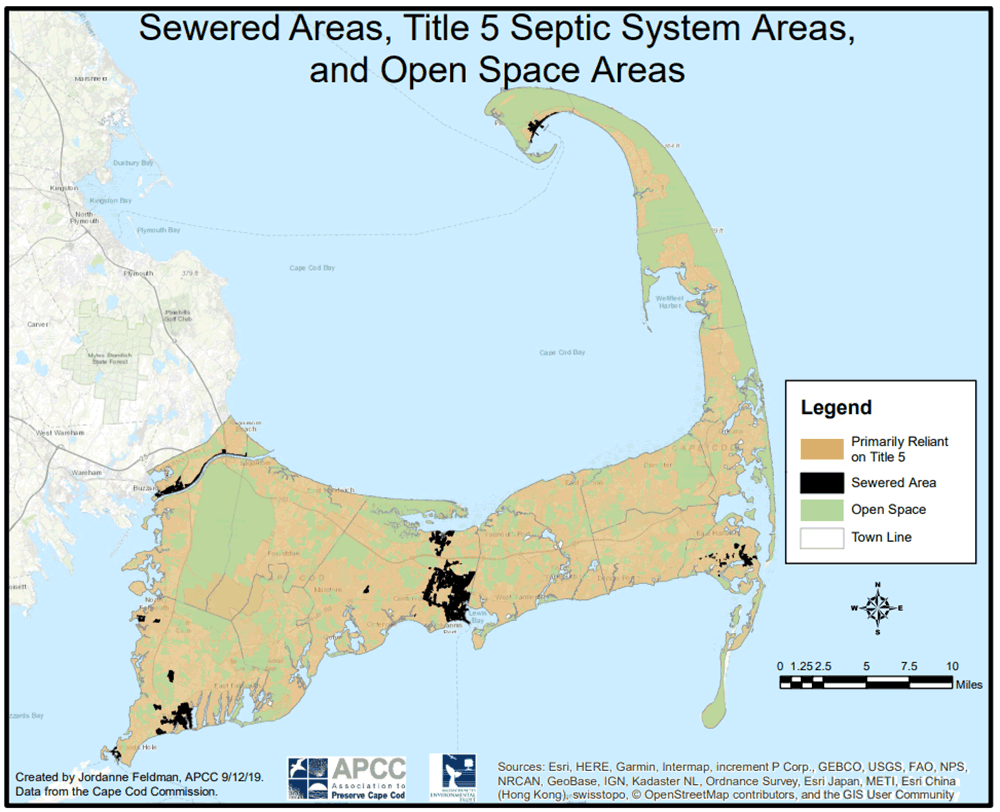Advertisement
The State Of The Cape's Coastal And Fresh Water Is 'Alarming,' Report Concludes

More than two-thirds of Cape Cod's embayments, or shoreline indentations, and one-third of its freshwater ponds have serious water quality issues, a new report finds.
The report out Wednesday, from the nonprofit Association to Preserve Cape Cod, paints a picture of a region-wide coastal and freshwater problem.
The issues stem mostly from old septic systems in the area and poorly treated wastewater, which pollute water bodies with excess nutrients like nitrogen and phosphorus. Other factors — like storm runoff, mercury pollution from fossil fuel plants and industrial compounds like PFAS (per- and poly-fluoroacetate substances) — also contribute to the problem.
"The report conclusions clearly show the alarming impacts that excessive nutrients from inadequately treated wastewater have had on water resources all across Cape Cod,” says Andrew Gottlieb, APCC executive director.
People have known about pollution in coastal waters on the Cape for a few decades, but the extent of the freshwater pollution is a bit surprising, he adds.
"The pond analysis was a verification of what a lot of people surmised," Gottlieb says, "but this is the first time it’s really been documented in a discernible, digestible way."

Of particular concern in freshwater ponds is cyanobacteria, or toxic blue-green algae, which poses a health risk for humans and animals. The bacteria proliferate in warm, nutrient-rich waters — meaning that climate change will only make the problem worse.
"We’ve already seen a marked increase in cyanobacteria blooms in 2019," Gottlieb says. "And when we update the report in 2020, the rating for the ponds is actually going to go down."
Not everything in the report was doom and gloom. Drinking water in all 15 towns on the Cape was "excellent."
"That's not by accident," Gottlieb says. "Thirty years ago, people realized the importance of protecting drinking water sources, and towns actively managed those resources."
The technology to clean up coastal waters and freshwater ponds exists; the challenge, he says, is convincing local governments to make a similar investment in these areas.
"Water is everything to Cape Cod. People come to the Cape because it provides excellent water-based recreational and aesthetic opportunities. The entire foundation of the Cape Cod economy is based on [water]," Gottlieb says. "And to the extent that water quality in our marine environment, and now our fresh water ponds, doesn’t support that … everything we have on Cape Cod is jeopardized as well."


